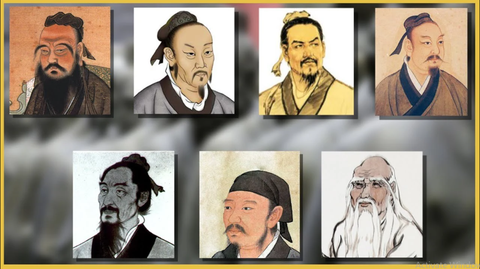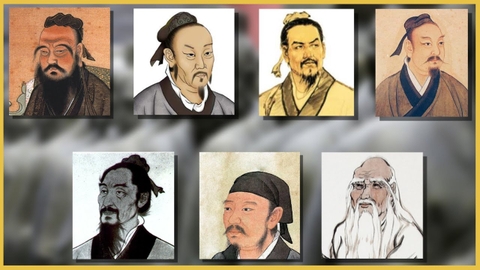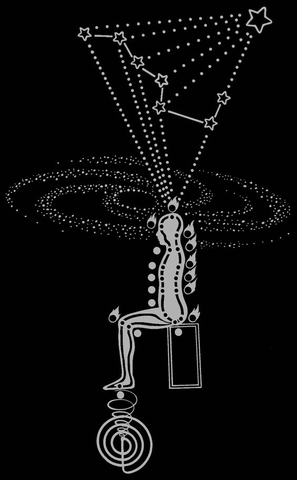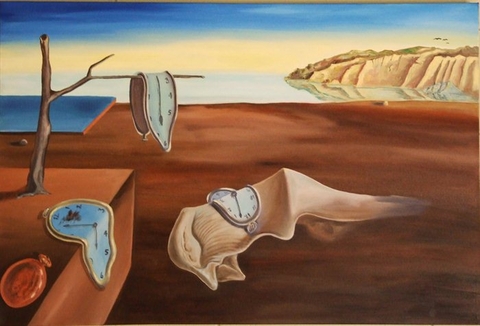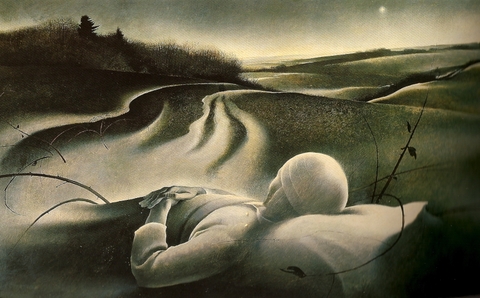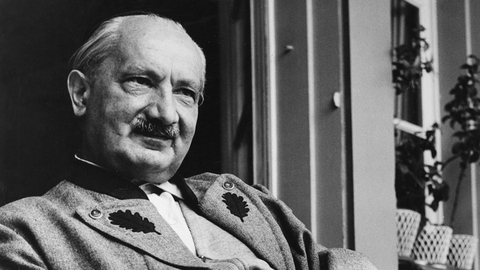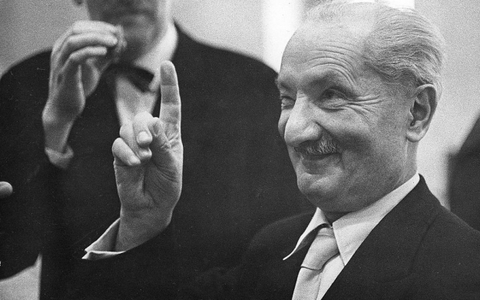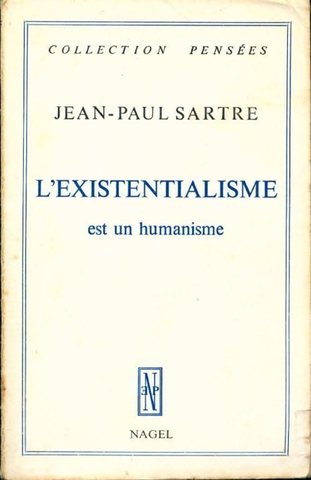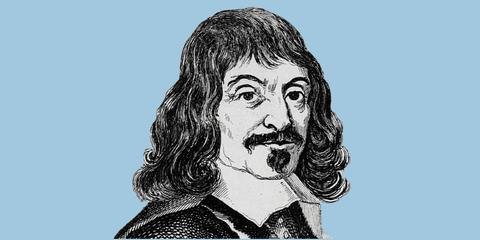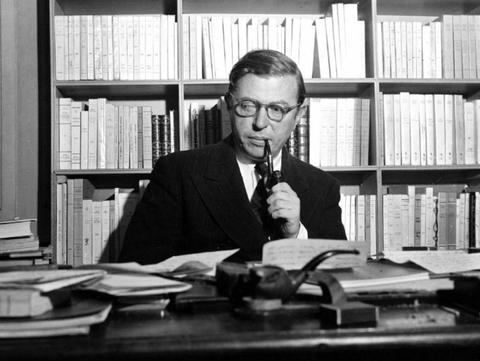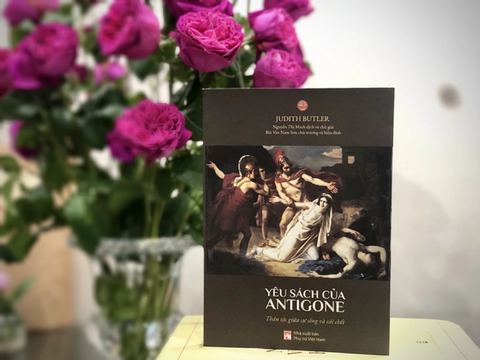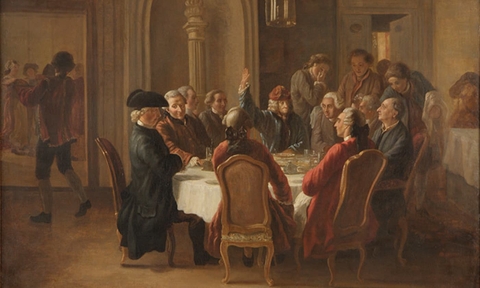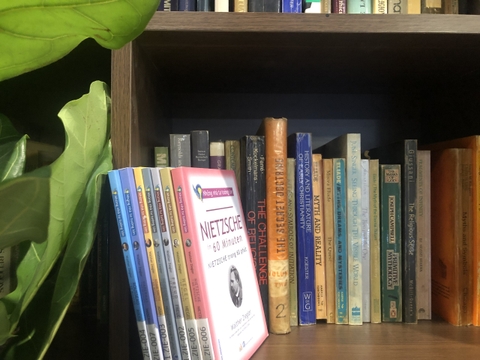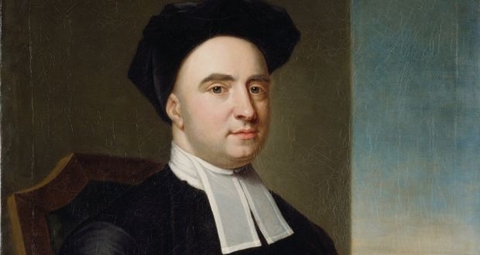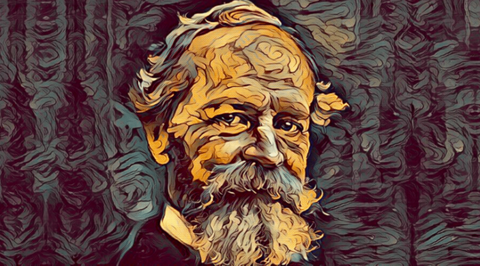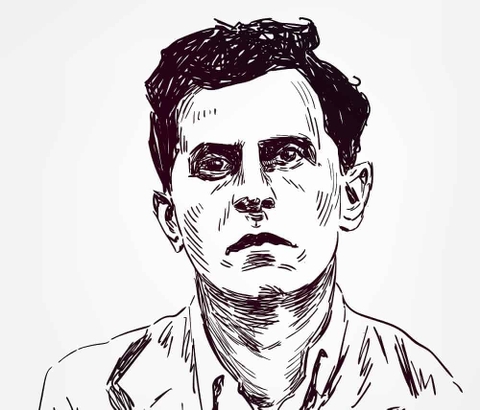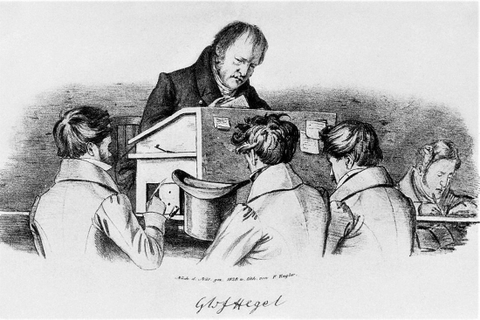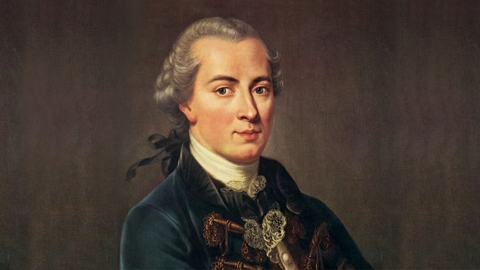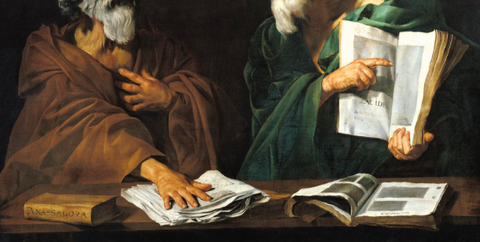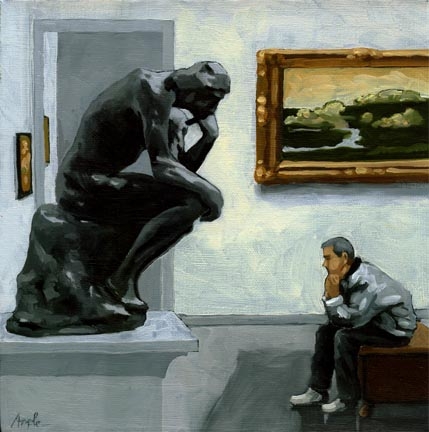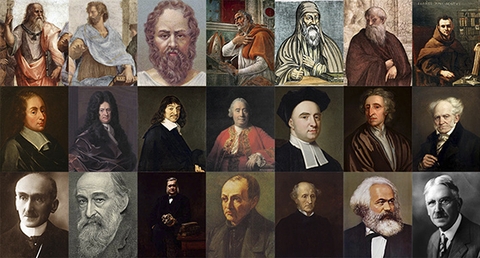Read ON THE ESSENCE OF TRUTH - MARTIN HEIDEGGER - translated by JOHN SALLIS - PART I

4. The Essence of Freedom
However, indication of the essential connection between truth as correctness and freedom uproots those preconceptions — granted of course that we are prepared for a transformation of thinking. Consideration of the essential connection between truth and freedom leads us to pursue the question of the essence of man in a regard which assures us an experience of a concealed essential ground of man (of Dasein), and in such a manner that the experience transposes us in advance into the originally essential domain of truth. But here it becomes evident also that freedom is the ground of the inner possibility of correctness only because it receives its own essence from the more original essence of uniquely essential truth. Freedom was first determined as freedom for what is opened up in an open region. How is this essence of freedom to be thought? That which is opened up, that to which a presentative statement as correct corresponds, are beings opened up in an open comportment. Freedom for what is opened up in an open region lets beings be the beings they are. Freedom now reveals itself as letting beings be.
Ordinarily we speak of letting be whenever, for example, we forgo some enterprise that has been planned. “We let something be” means we do not touch it again, we have nothing more to do with it. To let something be has here the negative sense of letting it alone, of renouncing it, of indifference and even neglect. However, the phrase required now — to let beings be — does not refer to neglect and indifference but rather the opposite. To let be is to engage oneself with beings. On the other hand, to be sure, this is not to be understood only as the mere management, preservation, tending, and planning of the beings in each case encountered or sought out. To let be — that is, to let beings be as the beings which they are — means to engage oneself with the open region and its openness into which every being comes to stand, bringing that openness, as it were, along with itself. Western thinking in its beginning conceived this open region as ta alethea the unconcealed.
If we translate aletheia as "unconcealment" rather than “truth,” this translation is not merely more literal; it contains the directive to rethink the ordinary concept of truth in the sense of the correctness of statements and to think it back to that still uncomprehended disclosedness and disclosure of beings. To engage oneself with the disclosedness of beings is not to lose oneself in them; rather, such engagement withdraws in the face of beings in order that they might reveal themselves with respect to what and how they are and in order that presentative correspondence might take its standard from them. As this letting-be, it exposes itself to beings as such and transposes all comportment into the open region. Letting-be, i. e., freedom, is intrinsically exposing, ek-sistent. Considered in regard to the essence of truth, the essence of freedom manifests itself as exposure to the disclosedness of beings.
Freedom is not merely what common sense is content to let pass under this name: the caprice, turning up occasionally in our choosing, of inclining in this or that direction. Freedom is not mere absence of constraint with respect to what we can or cannot do. Nor is it on the other hand mere readiness for what is required and necessary (and so somehow a being). Prior to all this (“negative” and “positive” freedom), freedom is engagement in the disclosure of beings as such. Disclosedness itself is conserved in ek-sistent engagement, through which the openness of the open region, i. e., the “there” [“Da”], is what it is.
In Da-sein the essential ground, long ungrounded, on the basis of which man is able to ek-sist, is preserved for him. Here “existence” does not mean existentia in the sense of occurring or being at hand. Nor on the other hand does it mean, in an “existentiell” fashion, man‟s moral endeavor in behalf of his “self,” based on his psychophysical constitution. Ek-sistence, rooted in truth as freedom, is exposure to the disclosedness of beings as such. Still uncomprehended, indeed, not even in need of an essential grounding, the ek-sistence of historical man begins at that moment when the first thinker takes a questioning stand with regard to the unconcealment of beings by asking: what are beings?
In this question unconcealment is experienced for the first time. Being as a whole reveals itself as physis, “nature,” which here does not yet mean a particular sphere of beings but rather beings as such as a whole, specifically in the sense of emerging presence [aufgehendes Anwesen]. History begins only when beings themselves are expressly drawn up into their unconcealment and conserved in it, only when this conservation is conceived on the basis of questioning regarding beings as such. The primordial disclosure of being as a whole, the question concerning beings as such, and the beginning of Western history are the same; they occur together in a “time” which, itself unmeasurable, first opens up the open region for every measure.
But if ek-sistent Da-sein, which lets beings be, sets man free for his “freedom” by first offering to his choice something possible (a being) and by imposing on him something necessary (a being), human caprice does not then have freedom at its disposal. Man does not “possess” freedom as a property. At best, the converse holds: freedom, ek-sis tent, disclosive Da-sein, possesses man — so originally that only it secures for humanity that distinctive relatedness to being as a whole as such which first founds all history. Only ek-sistent man is historical. “Nature” has no history.
Freedom, understood as letting beings be, is the fulfillment and consummation of the essence of truth in the sense of the disclosure of beings. “Truth” is not a feature of correct propositions which are asserted of an “object” by a human “subject” and then are valid” somewhere, in what sphere we know not. Rather, truth is disclosure of beings through which an openness essentially unfolds [west]. All human comportment and bearing are exposed in its open region. Therefore man is in the manner of ek-sistence.
Because every mode of human comportment is in its own way open and plies itself to that toward which it comports itself, the restraint of letting-be, i. e., freedom, must have granted it its endowment of that inner directive for correspondence of presentator to beings. That man ek-sists now means that for historical human ity the history of its essential possibilities is conserved in the disclosure of beings as a whole. The rare and the simple decisions of history arise from the way the original essence of truth essentially unfolds.
However, because truth is in essence freedom, historical man can, in letting beings be, also not let beings be the beings which they are and as they are. Then beings are covered up and distorted. Semblance comes to power. In it the non-essence of truth comes to the fore. However, because ek-sistent freedom as the essence of truth is not a property of man; because on the contrary man eksists and so becomes capable of history only as the property of this freedom; the non-essence of truth cannot first arise subsequently from mere human incapacity and negligence.
Rather, untruth must derive from the essence of truth. Only because truth and untruth are, in essence, not irrelevant to one another but rather belong together is it possible for a true proposition to enter into pointed opposition to the corresponding untrue proposition. The question concerning the essence of truth thus first reaches the original domain of what is at issue when, on the basis of a prior glimpse of the full essence of truth, it has included a consideration of untruth in its unveiling of that essence. Discussion of the non-essence of truth is not the subsequent filling of a gap but rather the decisive step toward an adequate posing of the question concerning the essence of truth. Yet how are we to comprehend the non-essence in the essence of truth? If the essence of truth is not exhausted by the correctness of statements, then neither can untruth be equated with the incorrectness of judgments.
5. The Essence of Truth
The essence of truth reveals itself as freedom. The latter is ek-sistent, disclosive letting beings be. Every mode of open comportment flourishes in letting beings be and in each case is a comportment to this or that being. As engagement in the disclosure of being as a whole as such, freedom has already attuned all comportment to being as a whole. However, being attuned (attunement) can never be understood as “experience and “feeling,” because it is thereby simply deprived of its essence. For here it is interpreted on the basis of something (“life” and “soul”) that can maintain the semblance of the title of essence only as long as it bears in itself the distortion and misinterpretation of being attuned. Being attuned, i. e., ek-sistent exposedness to beings as a whole, can be “experienced" and “felt” only because the “man who "experiences" without being aware of the essence of the attunement, is always engaged in being attuned in a way that discloses beings as a whole.
Every mode of historical man‟s comportment whether accentuated or not, whether understood or not — is attuned and by this attunement is drawn up into beings as a whole. The openedness of being as a whole does not coincide with the sum of all immediately familiar beings. On the contrary: where beings are not very familiar to man and are scarcely and only roughly known by science, the openedness of beings as a whole can prevail more essentially than it can where the familiar and well-known has become boundless, and nothing is any longer able to withstand the business of knowing, since technical mastery over things bears itself without limit. Precisely in the leveling and planning of this omniscience, this mere knowing, the openedness of beings gets flattened out into the apparent nothingness of what is no longer even a matter of indifference but rather is simply forgotten.
Letting beings be, which is an attuning, a bringing into accord, prevails throughout and anticipates all the open comportment that flourishes in it. Man‟s comportment is brought into definite accord throughout by the openedness of being as a whole. However, from the point of view of everyday calculations and preoccupations this “as a whole” appears to be incalculable and incomprehensible. It cannot be understood on the basis of the beings opened up in any given case, whether they belong to nature or to history. Although it ceaselessly brings everything into definite accord, still it remains indefinite, indeterminable; it then coincides for the most part with what is most fleeting and most unconsidered. However, what brings into accord is not nothing but rather a concealing of beings as a whole. Precisely because letting be always lets beings be in a particular comportment which relates to them and thus discloses them, it conceals beings as a whole. Letting-be is intrinsically at the same time a concealing. In the ek-sistent freedom of Dasein a concealing of being as a whole comes to pass [ereignet sichj. Here there is concealment.
6. Untruth as Concealing
Concealment deprives aletheia of disclosure yet does not render it steresis (privation); rather, concealment preserves what is most proper to aletheia as its own. Considered with respect to truth as disclosedness, concealment is then undisclosedness and accordingly the untruth that is most proper to the essence of truth. The concealment of beings as a whole does not first show up subsequently as a consequence of the fact that knowledge of beings is always fragmentary. The concealment of beings as a whole, untruth proper, is older than every openedness of this or that being. It is also older than letting-be itself which in disclosing already holds concealed and comports itself toward concealing. What conserves letting-be in this relatedness to concealing? Nothing less than the concealing of what is concealed as a whole, of beings as such, i. e., the mystery; not a particular mystery regarding this or that, but rather the one mystery — that, in general, mystery (the concealing of what is concealed) as such holds sway throughout man‟s Dasein.
In letting beings as a whole be, which discloses and at the same time conceals, it happens that concealing appears as what is first of all concealed. Insofar as it ek-sists, Da-sein conserves the first and broadest undisclosedness, untruth proper. The proper non-essence of truth is the mystery. Here non-essence does not yet have the sense of inferiority to essence in the sense of what is general (koinon genos), its possibilitas and the ground of its possibility. Non-essence is here what in such a sense would be a pre-essential essence. But "non-essence" means at first and for the most part the deformation of that already inferior essence. Indeed, in each of these significations the non-essence remains always in its own way essential to the essence and never becomes inessential in the sense of irrelevant. But to speak of non-essence and untruth in this manner goes very much against the grain of ordinary opinion and looks like a dragging up of forcibly contrived paradoxes. Because it is difficult to eliminate this impression, such a way of speaking, paradoxical only for ordinary doxa (opinion), is to be renounced. But surely for those who know about such matters the “non-” of the primordial non-essence of truth, as untruth, points to the still unexperienced domain of the truth of Being (not merely of beings).
As letting beings be, freedom is intrinsically the resolutely open bearing that does not close up in itself. All comportment is grounded in this bearing and receives from it directedness toward beings and disclosure of them. Nevertheless, this bearing toward concealing conceals itself in the process, letting a forgottenness of the mystery take precedence and disappearing in it. Certainly man takes his bearings [verhalt sich] constantly in his comportment toward beings; but for the most part he acquiesces in this or that being and its particular openedness. Man clings to what is readily available and controllable even where ultimate matters are concerned. And if he sets out to extend, change, newly assimilate, or secure the openedness of the beings pertaining to the most various domains of his activity and interest, then he still takes his directives from the sphere of readily available intentions and needs.
However, to reside in what is readily available is intrinsically not to let the concealing of what is concealed hold sway. Certainly among readily familiar things there are also some that are puzzling, unexplained, undecided, questionable. But these self-certain questions are merely transitional, intermediate points in our movement within the readily familiar and thus not essential. Wherever the concealment of beings as a whole is conceded only as a limit that occasionally announces itself, concealing as a fundamental occurrence has sunk into forgottenness.
But the forgotten mystery of Dasein is not eliminated by the forgottenness; rather, the forgottenness bestows on the apparent disappearance of what is forgotten a peculiar presence [Gegenwart]. By disavowing itself in and for forgottenness, the mystery leaves historical man in the sphere of what is readily available to him, leaves him to his own resources. Thus left, humanity replenishes its “world” on the basis of the latest needs and aims, and fills out that world by means of proposing and planning. From these man then takes his standards, forgetting being as a whole. He persists in them and continually supplies himself with new standards, yet without considering either the ground for taking up standards or the essence of what gives the standard. In spite of his advance to new standards and goals, man goes wrong as regards the essential genuineness of his standards. He is all the more mistaken the more exclusively he takes himself, as subject, to be the standard for all beings. The inordinate forgetfulness of humanity persists in securing itself by means of what is readily available and always accessible. This persistence has its unwitting support in that bearing by which Dasein not only ek-sists but also at the same time in-sists, i. e., holds fast to what is offered by beings, as if they were open of and in themselves. As ek-sistent, Dasein is insistent. Even in insistent existence the mystery holds sway, but as the forgotten and hence “inessential” essence of truth.





